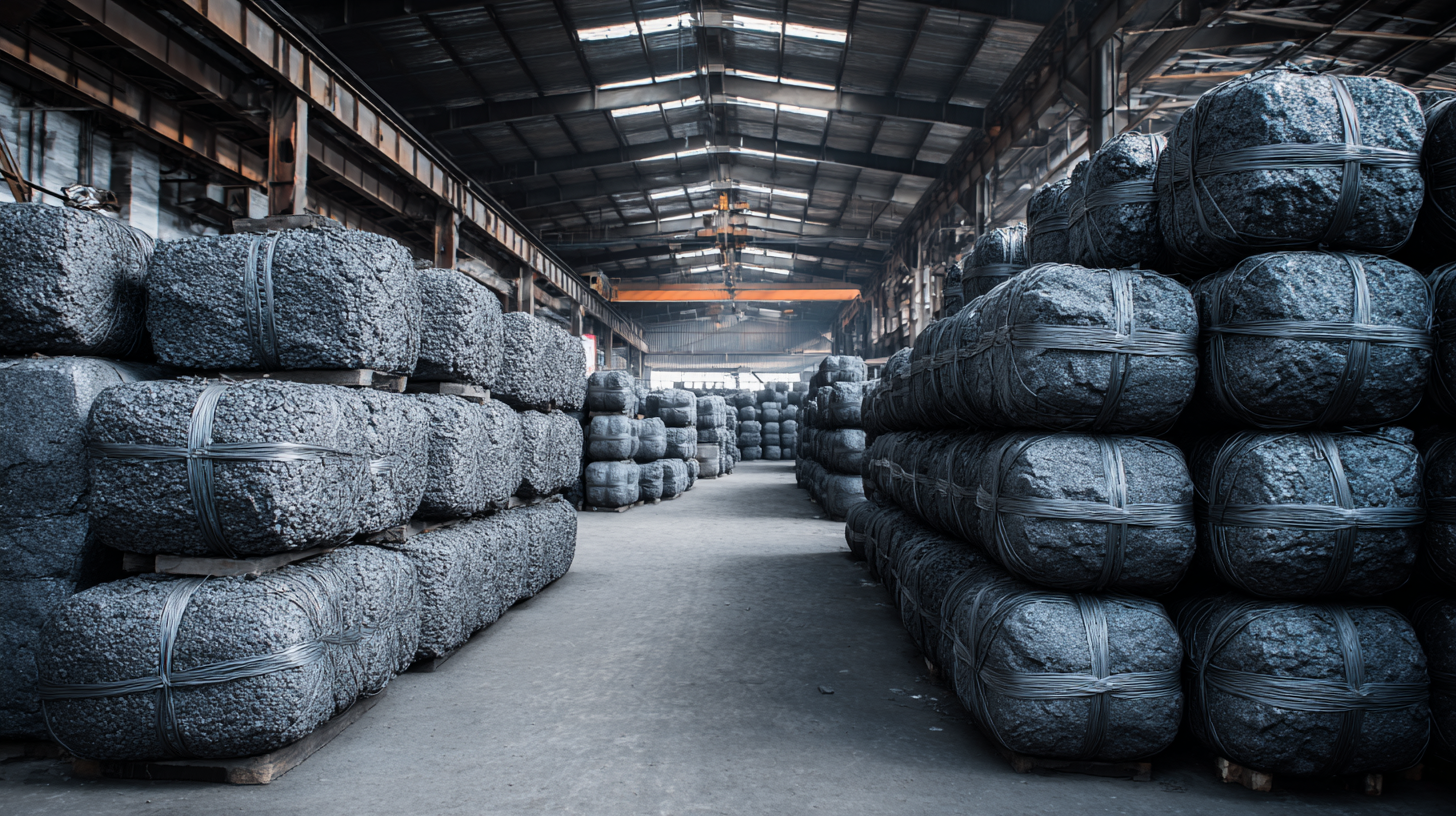Leave Your Message
In the competitive landscape of industrial applications, sourcing high-quality Ferro Silicon Manganese presents unique challenges that can significantly impact production efficiency and product performance. As an essential alloying agent used primarily in steel manufacturing, Ferro Silicon Manganese enhances the strength and durability of alloys, making it a critical component in various industrial processes. However, the complexities involved in sourcing the best-grade Ferro Silicon Manganese—ranging from fluctuating market prices to variations in material quality—pose substantial obstacles for manufacturers. This blog will delve into the inherent challenges of sourcing Ferro Silicon Manganese and explore the multitude of benefits associated with utilizing top-grade materials in industrial applications. By understanding these factors, industries can better navigate the supply chain dynamics and optimize their production efforts for superior results.

Identifying quality Ferro Silicon Manganese (FeSiMn) for industrial applications presents significant challenges for manufacturers and suppliers. The global market for Ferro alloys is projected to reach USD 20 billion by 2027, with Ferro Silicon Manganese accounting for a substantial portion of this growth. However, as industry needs become more specific and diverse, so too does the complexity of sourcing this essential alloy. The challenge lies not only in the variability of raw materials but also in the stringent quality standards imposed by end-users, particularly in steelmaking and silicon production, where purity levels and chemical composition are critical.
Moreover, studies indicate that over 15% of Ferro alloys produced globally do not meet the desired quality specifications, which can lead to significant financial losses and production delays. Manufacturers are increasingly faced with the challenge of ensuring that their suppliers are capable of delivering consistent quality. In a recent survey, 60% of industry experts cited quality assurance and supplier reliability as primary concerns in the sourcing process. As the demand for high-grade Ferro Silicon Manganese continues to rise, it is imperative for companies to develop robust sourcing strategies and conduct thorough supplier evaluations to secure the best materials for their operational needs.

The quality of ferro silicon manganese (FeSiMn) is profoundly influenced by the sourcing of its raw materials, a crucial factor in various industrial applications, particularly in steelmaking and aluminum production. According to a report from the International Ferroalloys Association, the overall quality of FeSiMn can be compromised if the manganese ore and silica used are not of the highest standard. Manganese ore purity, for instance, has notable implications on the final product's performance; using ores with a manganese content below 30% can lead to inefficient metallurgical properties in ferro alloys.
Additionally, the geographical sourcing of raw materials plays a significant role. Data from Metal Bulletin indicates that regions like South Africa and Brazil are leading suppliers of high-grade manganese ores, accounting for approximately 70% of global production. However, regional supply chain disruptions, whether due to political instability or environmental regulations, can affect availability and quality. Inconsistent sourcing practices can result in deviations in the FeSiMn specifications, directly impacting alloy characteristics and the efficacy of production processes. This highlights the necessity for industries to prioritize robust supply chain management strategies to ensure consistent quality in their raw material procurement.

The acquisition of Ferro Silicon Manganese (FeSiMn) has become increasingly complex due to various supply chain issues. Industries relying on this crucial alloy for steel manufacturing and other applications face significant challenges. Factors such as geopolitical tensions, fluctuating raw material prices, and transportation disruptions have contributed to an unstable supply chain. Companies must navigate these hurdles carefully to ensure a steady supply of high-quality FeSiMn.
One major challenge in sourcing FeSiMn is the reliance on specific regions for raw materials. Many suppliers are concentrated in certain areas, leading to vulnerabilities in the supply chain. Natural disasters, political instability, or regulatory changes in these regions can result in delays or increased costs. To mitigate these risks, industries are exploring alternative sourcing strategies, including diversifying suppliers and enhancing domestic production capabilities. Furthermore, implementing advanced inventory management practices can help businesses maintain resilience against sudden market shifts, ensuring that they can meet their production demands without significant interruptions.
The production of Ferro Silicon Manganese (FeSiMn) has seen significant technological innovations in recent years, shaping the way industries approach sourcing this critical alloy. Advanced metallurgical processes have enhanced the efficiency of production, reducing waste and energy consumption while improving product quality. For industries reliant on FeSiMn, it is crucial to stay updated on these advancements to secure a competitive edge in the marketplace.
**Tip:** When sourcing Ferro Silicon Manganese, consider partnering with suppliers who employ the latest technologies in production. This can lead to superior material quality and performance, better meeting your specific industrial needs.
Additionally, the integration of automation and real-time data analytics into production lines has streamlined operations, resulting in more consistent supply chains. By leveraging these innovations, manufacturers can quickly adapt to changing market demands and optimize their sourcing strategies.
**Tip:** Regularly review and assess your suppliers' technological capabilities to ensure that you are maximizing your investment in Ferro Silicon Manganese, as a forward-thinking supplier can provide additional insights into industry trends and potential disruptions.
| Dimension | Details |
|---|---|
| Sourcing Challenges | Variability in quality and availability from suppliers |
| Technological Innovations | Automated production processes improving efficiency |
| Quality Standards | International standards ensuring consistent quality |
| Market Demand | Increasing demand in steel and alloy production |
| Sustainability Practices | Eco-friendly production methods being adopted |
| Supply Chain Issues | Disruptions due to geopolitical Factors or pandemics |
Sourcing high-quality ferro silicon manganese is essential for various industrial applications, particularly in steel manufacturing. To mitigate the challenges associated with inconsistent quality, companies must adopt strategic measures throughout the supply chain. One effective approach is to establish long-term partnerships with reputable suppliers known for their adherence to quality standards. Conducting thorough audits and quality assessments of potential suppliers can help ensure that the materials meet the necessary specifications, thus minimizing the risk of variability in production processes.
In addition to selecting reliable suppliers, implementing rigorous quality control measures is vital. This can include regular testing and sampling of the ferro silicon manganese to monitor its chemical composition and physical properties. Utilizing advanced analytical techniques allows for early detection of any deviations from expected quality levels, enabling companies to take corrective actions promptly. Moreover, investing in training and development for staff involved in purchasing and quality assurance will enhance their ability to identify and address quality issues efficiently. By prioritizing these strategies, industries can secure a consistent supply of ferro silicon manganese that meets their operational requirements.
This chart illustrates the average quality scores of Ferro Silicon Manganese across various suppliers, highlighting the challenges in maintaining consistent quality for industrial applications.
